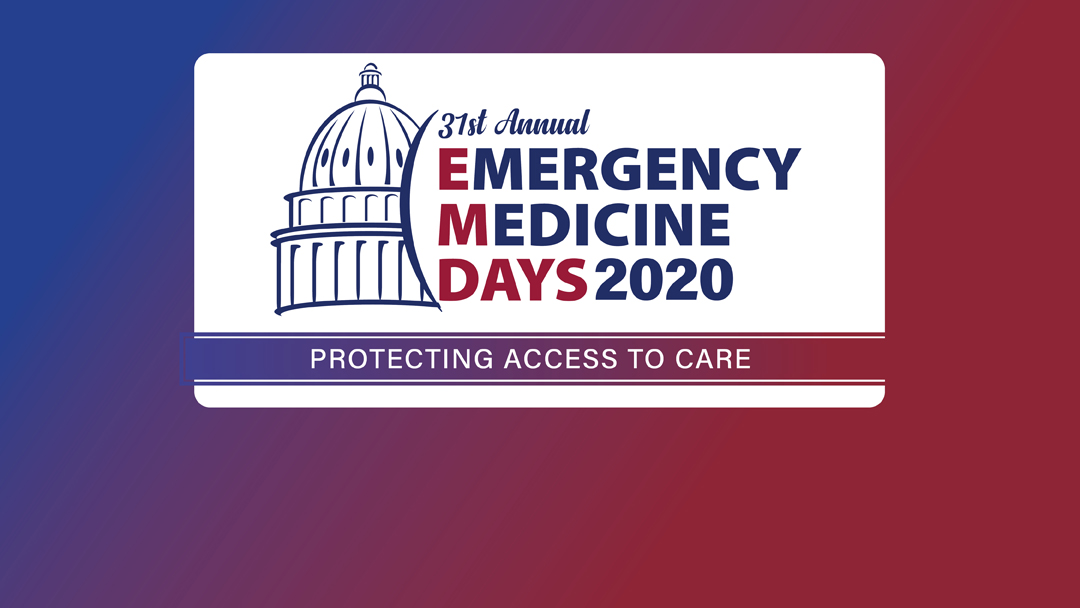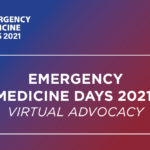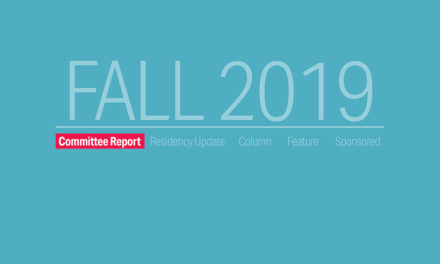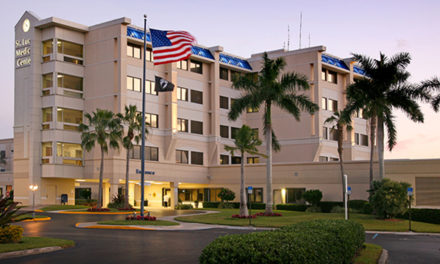Winter 2020: Government Affairs: Legislative Session Preview
2020 will be an early Legislative Session in Tallahassee. FCEP will be holding its annual advocacy meeting, Emergency Medicine (EM) Days, on January 27-29. This year looks like it will reignite many of the battles we have been fighting over the past several years.
At the forefront will be scope of practice bills. There will be another push to expand nurse practitioner and physician assistant scope of practice to independent practice (HB 607). Separately, there will once again be a bill (HB 389) that would allow pharmacists to test for and treat influenza and strep pharyngitis through a collaborative agreement with a co-signing physician. Besides the obvious fact that pharmacists aren’t trained clinicians, another concern is that the bill does not necessitate the collaborative physician have an existing relationship with the patient, so conceivably, any national pharmacy-employed doctor who doesn’t practice clinically could write up a protocol for any pharmacy in Florida. FCEP, along with organized medicine, has successfully fought off any expansion of scope bills for the past several years. We’ve successfully worked with our friends in the Senate to avoid encroachment of non-physicians expanding their scope to practice medicine unsupervised. We will once again need to band together to hold off another strong push from the House, which will be heavily lobbied by pharmacies, health insurers and nursing organizations.
A lesser talked about but still important bill (HB 771) involves the replacement of Personal Injury Protection (PIP) Auto Insurance with Bodily Injury (BI) Insurance. Motor vehicle accidents make up 2-5% of ED visits in Florida. PIP, while far from the perfect system, does provide physicians with prompt and reasonable payments, and currently has a $10,000 medical (both hospital and provider) set-aside for reimbursement. The BI proposal would shift those costs back to health insurers, who are working ceaselessly to lower reimbursement. Even worse, we know 40-50% of our patients are Medicaid/uninsured. If they are involved in an accident and fault is not clear, it could take years of court dates to determine fault, and most physician bills will be delayed (or reimbursed at lower rates) until fault is determined. Coupled with the shift to high-deductible plans, this will exacerbate the worsening collection liquidity crunch for Florida groups, as it will take even longer to recoup reimbursement from auto-accidents. BI could work if there is a mandatory med-payment set aside. FCEP is working hard to have a set-aside for EMTALA providers who see the majority of uninsured, self-funded patients in Florida.
Many other issues remain on FCEP’s radar for 2020. We are closely watching a bill (HB 309) that would define the use of “doctor” in a clinical setting. Sponsored by Dr. Massullo, a representative in the Spring Hill area, it is well supported by organized medicine, and its movement in the legislature might signify where the scope battle heads. We are also supporting mental health and substance abuse disorder bills, which will add funding for opioid/mental health treatment, as well as define peer specialists in Florida. FCEP is also supporting a bill that will allow Florida schools to stock and use naloxone for opioid overdoses. In addition, we support a public records protection bill that would protect the personal addresses of EM physicians, nurses, techs, EMT’s and other first responders from being displayed as public record. FCEP believes this will protect first responders and ED practitioners from potentially violent patients, who can easily obtain home addresses.
Finally, although there is no specific bill, we are closely watching insurance companies and their practices. We have two EM Maximus dispute resolution cases in progress. They both involve the same insurer, which FCEP first identified two years ago for its predatory and potentially illegal practices. Through our collaboration, we have been able to track and closely monitor health insurers’ behavior towards EM groups as more states pass balance billing laws. We expect insurers will grow more brazen as the U.S. adopts a national law. If your group has been targeted with what you believe to be an unfair practice by a health insurer, FCEP would like to hear from you so that we can connect your group with the appropriate people in the state to get your matter resolved. This is a good reminder of what FCEP can do when we work and band together. Last year, we were able to stop a bill in its tracks that would have capped all reimbursement at 150% of Medicare. Remember, we need both your expertise and PAC donations to combat big insurance, the nursing lobby, lawyers, pharmacies, and whatever else poses an existential threat to emergency medicine.
Please join us in fighting for emergency physicians. We hope to see you all January 27-29, 2020 at Hotel Duval in Tallahassee for EM Days. ■
Emergency Medicine Days
FCEP's premier advocacy event during Florida Session
Priority Bills for EM Days 2020
CS/HB 607: Health Care Practitioners
Filed by: Rep. Cary Pigman, MD (R-District 55)
Capsule Summary: Would allow nurse practitioners and physician assistants to practice independently without a supervising physician.
Position: AGAINST
Bill History:
-Nov. 12: Filed
-Nov. 25: Referred to Health Quality Subcommittee
-Dec. 10: Strike All Amendment by Rep. Pigman
-Dec 11: CS by Health Quality Subcommittee (YEAS 14 vs. NAYS 1)
-Dec. 18: Now in Health Care Appropriations Subcommittee
HB 389: Testing and Treatment of Influenza & Streptococcus
Filed by: Rep. Tyler Sirois (R-District 51)
Capsule Summary: Would allow pharmacists to enter into partnership agreements with physicians to test & treat influenza & streptococcus at pharmacies.
Position: AGAINST
Bill History:
-Oct. 17: Filed
-Nov. 13: Favorable by Health Quality Subcommittee (YEAS 11 vs. NAYS 3); now in Health Care Appropriations Subcommittee
HB 771: Motor Vehicle Insurance
Filed by: Rep. Erin Grall (R-District 54)
Companion Bill: SB 378: Motor Vehicle Insurance by Sen. Tom Lee (R-District 20)
Capsule Summary: Would repeal Personal Injury Protection (PIP) Auto-insurance for Bodily Injury (BI). This would shift medical payments from auto insurers to health insurers, and remove the current mandatory medical set aside for physicians and hospitals.
Position: AGAINST
Bill History:
-Nov. 25: Filed
-Dec. 16: Referred to Insurance and Banking Subcommittee
HB 309: Prohibited Acts by Medical Providers
Filed by: Rep. Ralph Massullo (R-District 34)
Capsule Summary: Would allow the DOH to impose financial penalties upon anyone who uses the title “physician” and/or “medical doctor” without a valid license.
Position: SUPPORT
Bill History:
-Oct. 8: Filed
-Nov. 13: Favorable by Health Quality Subcommittee (YEAS 12 vs. NAYS 2); now in Health Care Appropriations Subcommittee
Also Monitoring:
- SB 878: Public Records/Emergency Room Health Care Practitioners (Sen. Harrell)
- HB 331 & SB 120: Naloxone in Schools (Rep. Geller & Sen. Pizzo)
- HB 939 & SB 706: Insurance Coverage Parity for Mental Health and Substance Use Disorders (Rep. Slosberg & Sen. Rouson)
- SB 926: Health Care Practitioner Licensure (Sen. Harrell)
- HB 57 & SB 100: Dispensing Medicinal Drugs (Rep. Willhite & Sen. Harrell)
- SB 298: Prior Authorization for Opioid Alternatives (Sen. Farmer)
- HB 743 & SB 1080: Nonopioid Alternatives (Rep. Plakon & Sen. Perry)
- HB 747 & SB 736: Coverage for Air Ambulance Services (Rep. Williamson & Sen. Diaz)
This article is part of the following sections:
Samantha manages fcep.org and publishes all content. Some articles may not be written by her. If you have questions about authorship or find an error, please email her directly.







